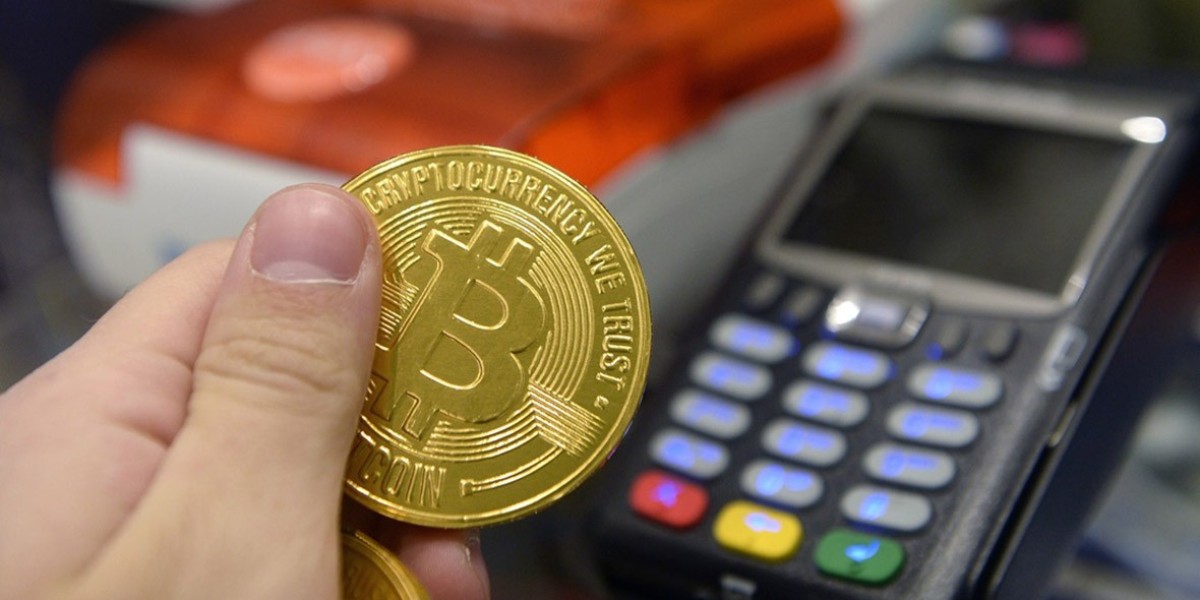Bitcoin, the pioneer of cryptocurrency, has transformed the way people think about payments. Over the years, it has evolved from a niche financial experiment into a widely accepted medium for online transactions. As the global payments market continues to shift towards digital currencies, the Bitcoin payments market is poised to experience substantial growth. In this article, we will explore the current scenario of Bitcoin payments, its adoption rate, challenges, and future prospects.
Growing Acceptance of Bitcoin
Bitcoin's rise in popularity has led to its integration into mainstream financial systems. Initially viewed with skepticism, Bitcoin is now being embraced by major corporations, financial institutions, and even governments. Retailers such as Microsoft, Overstock, and Newegg, among others, accept Bitcoin as a payment option, offering consumers the ability to purchase goods and services with the digital currency.
The acceptance of Bitcoin payments is further bolstered by the increasing use of payment processors like BitPay, Coinbase Commerce, and BTCPay Server, which enable merchants to accept Bitcoin payments seamlessly. As more companies adopt this payment method, Bitcoin's status as a legitimate and practical payment tool continues to grow.
Bitcoin Payments for International Transactions
One of the key advantages of Bitcoin payments is the ability to facilitate international transactions with ease. Traditional banking systems often impose hefty fees for cross-border transactions, and these can be particularly burdensome for individuals and businesses in developing countries. Bitcoin, however, allows for quick, secure, and cost-effective transfers without the need for intermediaries.
By utilizing Bitcoin, users can bypass banks and financial institutions, enabling peer-to-peer transactions that are faster and more affordable. This is especially beneficial for remittances, where migrants can send money back to their families with reduced fees and fewer delays.
Volatility Concerns
Despite its growing popularity, Bitcoin’s volatility remains a significant concern for both merchants and consumers. The value of Bitcoin can fluctuate wildly within short periods, which can make it difficult for businesses to price goods and services in the cryptocurrency. For instance, if the value of Bitcoin drops significantly between the time a purchase is made and when the transaction is settled, merchants may face losses.
To mitigate this issue, many businesses have opted to convert Bitcoin payments into traditional currencies immediately after receiving them. Payment processors like BitPay offer this service, allowing merchants to avoid exposure to Bitcoin’s price swings. However, this approach undermines one of the main benefits of using Bitcoin, which is the ability to hold value in a decentralized currency.
Regulatory Landscape
The regulatory environment surrounding Bitcoin and cryptocurrency payments is still evolving. Governments around the world are grappling with how to regulate digital currencies and address concerns related to money laundering, fraud, and tax evasion. Some countries, such as El Salvador, have fully embraced Bitcoin as legal tender, while others, like China, have cracked down on cryptocurrency transactions.
In many jurisdictions, Bitcoin payments are not yet subject to specific regulations, which creates a sense of uncertainty among both consumers and businesses. However, as the market matures and adoption increases, it is expected that clearer regulatory frameworks will emerge to provide more stability and confidence in Bitcoin payments.
Bitcoin’s Future in Payments
The future of Bitcoin payments is intertwined with the continued development of the cryptocurrency ecosystem. Innovations such as the Lightning Network, a second-layer solution designed to enable faster and cheaper Bitcoin transactions, could play a significant role in addressing Bitcoin's scalability and transaction speed issues.
As the Bitcoin network becomes more efficient, and as consumer and business adoption continues to grow, it is likely that Bitcoin will become a more widely used payment method. Additionally, the development of Bitcoin-backed financial products, such as Bitcoin credit cards, will further drive the mainstream acceptance of the cryptocurrency.
In conclusion, the Bitcoin payments market is experiencing a period of growth and transformation. While challenges such as volatility and regulatory uncertainty remain, the increasing acceptance of Bitcoin by consumers and businesses alike signals a promising future. As Bitcoin evolves, it is likely that it will continue to shape the future of digital payments, offering a decentralized alternative to traditional payment methods.


